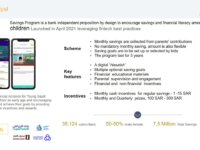India has several small cities lacking resources which has prevented them from offering digital services. To reduce the digital divide amongst the towns and cities and to ensure availability of digital services across the urban landscape of the country, NUDM attempts to offer a free, ready-made, and open-source software platform to cities and/or collectives (states). This platform is a choice-based model that benefits cities of varied maturity levels and preserves their existing investments.
Innovation Tag: Citizen Engagement
Zaragoza City Council has launched a new electronic citizen participation platform with the aim of involving its citizens in public policy decisions and in the design of its services. It provides an interactive space for residents to actively contribute, strengthening the collaboration between the administration and the community, thus fostering a more inclusive and transparent management.
The Network of Public Services (NPD) was established to collectively support and inspire public services, share knowledge and expertise and to lobby policy and politics. The NPD is an informal network of over 80 public services. Together, we present a strong voice towards politics and policy to make our wishes feasible, aiming for improving public services for citizens and entrepreneurs.
With the aim of continuing to promote confidence in legislative work and to open a more direct channel of communication with the new generations, LEGIS65 is born. LEGIS65 is a virtual assistant whose mission is to help society to know and learn more about the legislative work of Guanajuato, as well as the culture and history of the state, through illustrious characters produced by artificial intelligence tools.
A savings Program that is designed to encourage savings and financial literacy amongst Saudi children and providing financial inclusion for Young Saudi population (>18) from an early age and encouraging them to save and achieve their goals by providing attractive incentives and rewards and leveraging fintech best practices while applying behavioural economics.
The Ministry of Environment, Water, and Agriculture in Saudi Arabia proudly introduces the innovative mobile application called Livestock Chain as a groundbreaking solution leveraging Blockchain technology to effectively manage livestock data within the all country regions. This visionary application is designed to preserve the rich heritage of livestock while offering a secure mechanism for data storage and retrieval, by assigning each livestock a unique identifier.
In line with the Sustainable Development Goals 1 and to promote rational purchasing behaviour for welfare of consumers, the Government has developed a price monitoring and control application called “Mopri” with the aims to provide a single interactive platform for comparing retail prices of essential commodities across different outlets, to report any complaints on real time basis and provide information on regulated prices and policies.
Baia Mare has developed a community-driven approach to decontaminate heavy metal-polluted land using plants, addressing a critical public health issue. The project combines phytoremediation, smart mapping technology, and a digital reward system to encourage environmental action and sustainable development. This innovative model empowers citizens, improves urban health, and creates new green economic opportunities.
Bağcılar Municipality has implemented an Algorithmic Decision Systems model for evaluating public services to maximizing the value proposition and satisfaction level at the minimum cost. This model enables the municipality to make decisions regarding the investment worthiness of its current and planned services and activities, as well as the direction of improvements needed in existing products and services, both in the eyes of stakeholders and the organization.
The City of Austin launched Data Impact Visuals & Exploration (DIVE) to address low data literacy, limited accessibility, and lack of decision support tools. This project aims to empower diverse users with data skills, tools, and resources to make informed decisions. DIVE benefits community members, City staff, universities and funders. Innovative features include user-centric design, multiple components, a community-based approach and a long-term sustainability plan.


